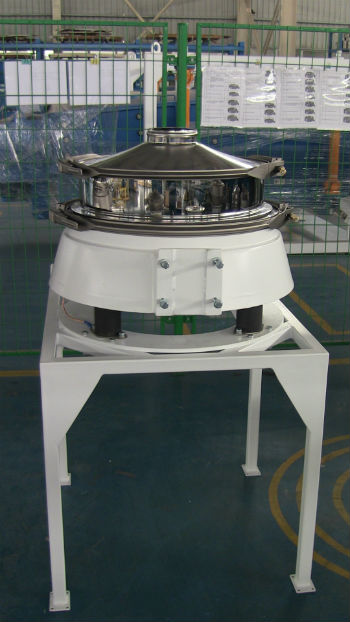Vibratory screeners come in a wide range of sizes and configurations to support a diverse set of applications. Choosing the right machine for your purposes can be a daunting task — particularly if you’re upgrading older equipment that has been used for years. Technology has changed considerably, and there’s a good chance what was best for your operation a generation ago has been superseded by something more efficient, effective and productive.
Rectangular Vibratory Screeners at a Glance
Rectangular vibrating screeners are used to quickly sort and separate high volumes of wet or dry materials. Generally speaking, they are durable and economical. Several configurations, including linear and sloped designs, make them capable of sorting particles as small as size 20 mesh (0.033”) or as large as 1/2″. As a result, they are suitable for a number of different applications.
Circular vs. Mechanical vs. Rectangular Screeners
Rectangular screeners are one of three main types of screener designs. They offer an excellent all-purpose alternative to circular screeners, which are more compact but typically more expensive, and mechanical screeners, which are simpler but less effective at fine separating and sieving tasks.

Some factors to consider when choosing a screener include:
- Production requirements: Any screener must be able to reliably and efficiently perform the desired screening or separating task. More versatile machines will be able to handle a wider range of processes, which can improve the overall efficiency of your operation.
- Footprint: In busy production facilities where space is at a premium, a smaller machine offers a number of benefits. At the same time, however, smaller machines can process fewer materials at a time. For high volume requirements, a larger footprint machine may be a better choice.
- Maintenance: For most screeners, maintenance means downtime, which cuts into your productivity. If you can’t afford to stop or slow down, choosing a machine with accessible components and fewer maintenance requirements can be a good investment.
- Safety: Safety is a concern for a number of screening applications, including pharmaceutical and chemical processing. Many screeners can be outfitted with ventilation hoods to reduce dust, allowing your crew to work safely with hazardous materials.
Industry Applications
Rectangular screeners can be found hard at work in a number of different industries, including:
- Food and beverage, where they are used to screen, grade and de-dust products such as sugar, flours and starches, preservatives and more, while meeting HACCP, HAZOP, FDA and other guidelines
- Ceramics, where they sort and sift important industrial materials such as quartz, feldspar, aluminum oxide and clay
- Quarry and aggregates, where they perform a number of tasks, including sorting, screening and classifying, dewatering and scalping materials such as asphalt, concrete, gravel and more
- Agriculture, where they separate, classify, de-dust and dewater crops, beans, grains, seeds and more.
Wondering if a rectangular vibratory screener is right for your application? Check out the VibraScreener™ website to learn more about our products and how they can help you. We manufacture a full range of screeners and separators, including the Bison Separator™, one of the most advanced rectangular screeners on the market today.





